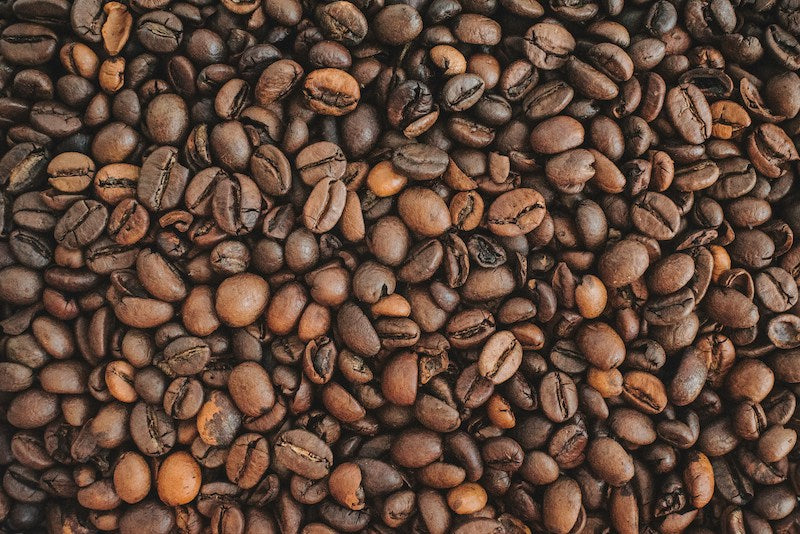As Earth Day approaches, it’s a good time to assess how our daily routines could better protect the planet. Who knew that could be as easy as making sure your cup of coffee is sustainably produced?
According to recent data published by Statista, approximately 60% of the world’s adult population drinks coffee, and from 2021 until 2022, approximately 176 million 60 kg bags of coffee were consumed worldwide. Likewise, the 2022 National Coffee Data Trends (NCDT) reported that coffee consumption had hit a two-decade high.
While coffee is a perennial crop that is cultivated by some brands in an eco-friendly manner, the massive uptick in demand has led most coffee producers down an ecologically unfriendly path. To meet demand, they’ve adopted agricultural practices that result in massive deforestation, soil erosion, the use of chemical fertilizers and pesticides, and water pollution.
Some Coffee Production Leads to Deforestation
If you’re a lover of coffee and nature like I am, it can be tough to face the music: Modern coffee production thrives on deforestation.
Today’s coffee production relies overwhelmingly on sun grown coffee plants, a crop that produces almost three times the amount of coffee as shade grown coffee plants. That said, sun grown coffee also requires large areas without forest canopy. Thus, to maximize light access, many coffee plantations remove large areas of rainforest.
According to data from The European Coffee Federation, approximately 8.8 million hectares of forest land vanish globally each year, primarily due to the transformation of forests into farmland. In the EU alone, farmland used for coffee production accounts for 7.01% of deforestation.
Deforestation has major impacts on the planet’s ecology. Primarily, it renders habitats inhospitable for the wildlife and plants that previously existed there, leading to a reduction in variety and variability of life forms, also known as biodiversity. Throughout our planet, healthy ecosystems rely on biodiversity for pollination and seed dispersal, water source filtration, climate control, and more. Moreover, biodiversity plays a crucial role in the planet’s ability to fulfill our fundamental human needs, including food, energy sources, housing and medicine.
As Linda Krudger, Director of Biodiversity and Infrastructure Policy for The Nature Conservancy, says: “The rapid loss of biodiversity that we are witnessing is about much more than nature. The collapse of ecosystems will threaten the well-being and livelihoods of everyone on the planet.”
How Coffee Taints the Soil and Water
Likewise, at its present scale, coffee’s production and consumption lead to soil erosion and water pollution.
When devoid of trees and converted into farmland, the soil on coffee farms loses valuable components and its fertility is compromised. Likewise, the dominant form of coffee farming is monocropping, which involves growing the same type of crop on the same land every year instead of rotating for another. While more economically efficient, this practice also degrades the pH and nutrient balance in the soil.
With these approaches, the soil becomes less stable and washes into nearby water bodies, along with any pesticides or chemicals applied to the crop. The latter is a big concern with coffee, as climate change makes the coffee crop more vulnerable to pests and diseases and more and more pesticides are being implemented in coffee production.
According to a study from the University of Copenhagen, Brazil, the largest coffee producer in the world, uses an overwhelming amount of pesticides in their coffee production: “With more than 470 licensed products approved for use in Brazil alone (Coelho et al., 2019), these agrochemicals are being used as a primary means of management in the onset of pests and diseases across all agricultural sectors including coffee.”
Once soil erodes and falls into waterways, pollution and sedimentation increase, damaging the water, wildlife and plants that humans depend on. Beyond water quality, soil erosion can also affect the stability of environments, causing mudslides and floods that can further alter natural ecosystems and human-inhabited areas.
Coffee production isn't the only thing that causes coffee-related water pollution. Human consumption does, too. In fact, a recent global study of pharmaceutical pollution found, after sampling over 258 rivers in over 104 countries, that freshwater caffeine pollution is everywhere as a result of its partial excretion in human urine. This, too, can have devastating effects on the planet’s ecosystems, altering habitats and killing species of plants and wildlife by way of caffeine toxicity.
A Switch That Serves the Planet
Globally, the adoption of monoculture coffee cultivation is driving deforestation, soil erosion and water contamination, ultimately threatening biodiversity and the stability of our planet’s ecosystems.
We're not suggesting that you remove your daily cup of joe from your routine entirely. We're simply encouraging you to consume intentionally and to research coffee companies dedicated to eco-friendly production. Doing so could safeguard a slice of rainforest, preserve a pristine water source, or protect a species for generations to come.
Alexa is a Seattle-based freelance content marketing writer, content strategist, and journalist. Her work has appeared in Rolling Stone, The Washington Post, and The Seattle Times, among others.




